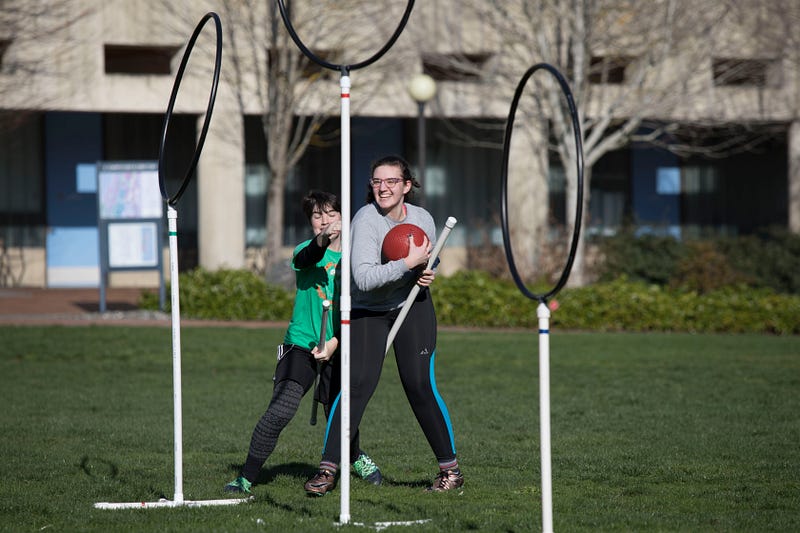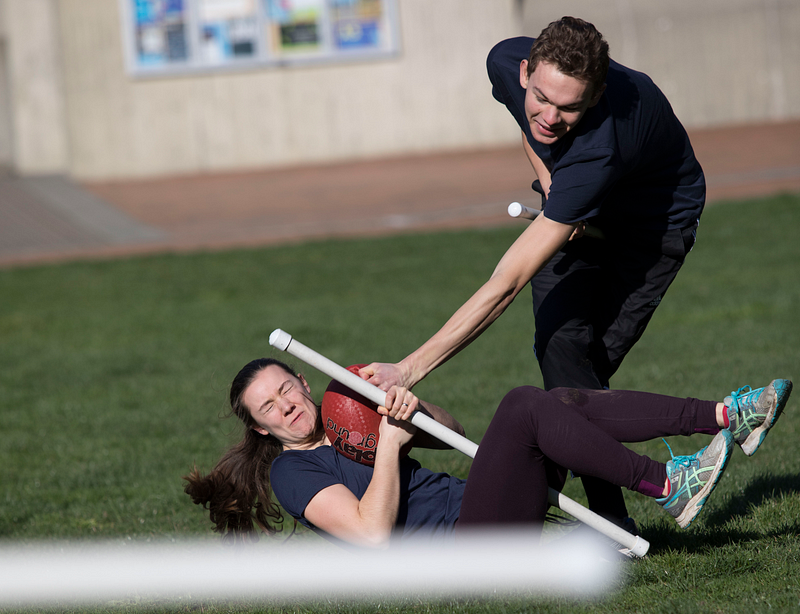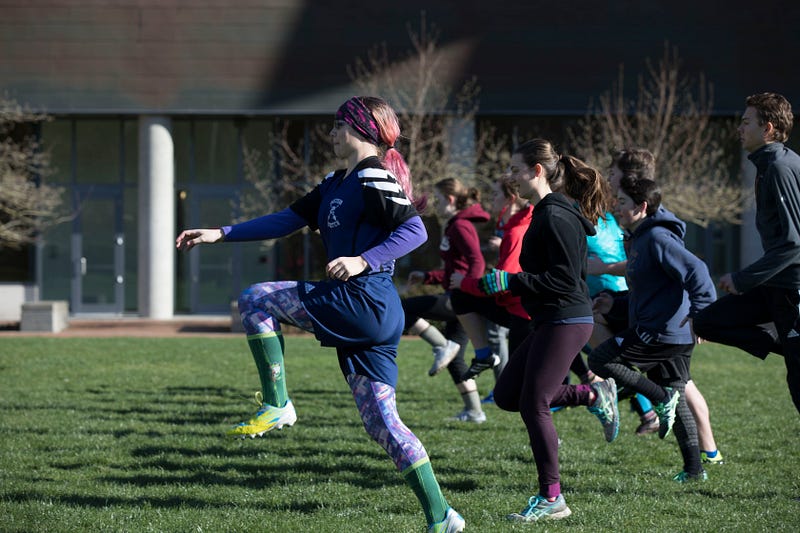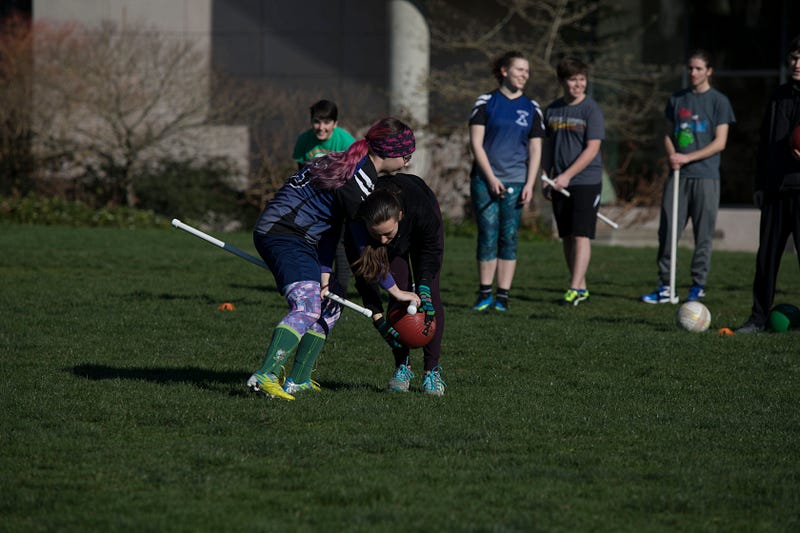A Magical Sport for Muggles
Quidditch, a sport invented from the imagination of author J.K. Rowling, flew into many Western students’ minds when choosing a club to join
Story by JAKE GREGG | Photos by HARRISON AMELANG

The crowd is just white noise to her. Their faces are just a blur. Wind pushing against her face, 100 feet in the air, all she is focused on is winning. Catching the golden snitch. Weaving in and out of traffic is easy with the Nimbus 2000 in between her legs, turning every corner with speed and precision.
But then she falls back down to the ground.
Reality hits hard. Muggles can’t fly.
Senior Lynne Nowak never got her Hogwarts letter when she turned 11. She never got the opportunity to join Slytherin, a house that values ambition.
“I was disappointed,” Nowak said. “I wanted that letter.”
With Hogwarts out of the picture, Nowak chose to attend Western instead. Although not a wizard, she did become a Viking.

Instead of herbology, Nowak decided to focus on marine ecology environmental science.
Once at Western, Novak went searching for a connection to a wizarding world. This is when she stumbled upon the Wyverns, Western’s quidditch team.
“I was looking for a sport to replace color guard and saw there was a quidditch team that existed and I thought, ‘You know what, that sounds fun. I’m going to do that,’” Novak said.
Quidditch was a sport created in the mind of J.K. Rowling, the author of book series “Harry Potter.” She wrote a seven-series story of a boy growing up in a non-magic household living with his aunt and uncle. Harry ultimately learns he is not only a wizard but a famous wizard. As a baby, Harry survived a killing curse by the darkest wizard of all time, Voldem… oops, sorry. He Who Must Not Be Named.
Harry attends Hogwarts School of Witchcraft and Wizardry where he is first introduced to quidditch, a sport involving flying brooms, mini batons, flying balls and a golden snitch.

Many readers of Harry Potter became fascinated with this sport, wanting a way to play it without needing the magic. This led to the United States Quidditch Association being created. There are around 150 teams nationwide in this group.
“We are bound to the laws of reality and we can’t fly,” Novak said.
Muggle quidditch is a contact sport consisting of seven players on the field per team. Points are scored by throwing the quaffle through a hoop guarded by the keeper. The hoop is essentially a giant bubble-blowing stick. The offensive team earns 10 points each time the quaffle is thrown through the opposing team’s hoop.
“Seekers are basically playing flag football. Beaters are playing dodgeball simultaneously and the keepers are the goalie,” Novak said. “The chasers are playing a modified rugby/basketball type game.”
At the 18th minute, a person dressed in gold with a tail between their legs will be released onto the field. At the end of the tail is a ball. This is the golden snitch. The first seeker on either team to snatch the snitch will earn their team 30 points, thus ending the game. The game will not end until the snitch is caught.
“You have games that go anywhere from 18 minutes and five seconds and the longest game I’ve ever witnessed [and] been a part of was 45 minutes,” Novak said.
The Western Wyverns was founded in 2010. They play for fun every Sunday at 1:30 p.m. on the Communications Facility lawn on campus. The team also competes against other Pacific Northwest schools in the United States Quidditch Association.
All are welcome to come play for fun, although only Western students are allowed to join the competitive team, Novak said.
Although an obscure sport, senior beater Claire Forsberg said it’s just as physically draining as other sports.
“There’s a lot of running. We are a full contact sport so we do [one-arm] tackle and have occasional injuries from that,” Forsberg said.

The worst injury Forsberg has heard about was someone breaking a collarbone during a match. She also said there has been the occasional small concussion; nothing that Hogwarts matron Madam Pomfrey couldn’t fix up in a day. Unfortunately, muggle quidditch also means muggle medicine, so healing takes a bit longer.
“[Quidditch is] definitely more physical than soccer just because we use our hands but I’d say it’s much less physical than football and hockey,” Forsberg said.
The Wyverns compete for a place in the national tournament, with five bids up for grabs at West Regionals. There are not enough college quidditch teams to have college division regionals, but there are enough teams for a community regional tournament.
The Wyverns earned a spot for nationals in 2014. They also earned the good sportsmanship award last year.
The Wyverns hope to hop on their nimbus 2000 PVC pipes and fly their way to the national tournament.